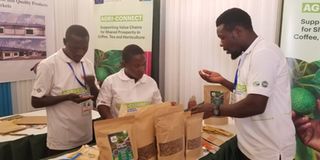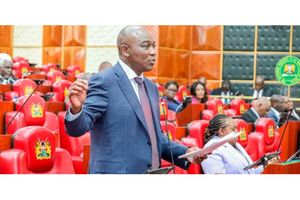Helvetas trains over 15,000 household in value chain management

What you need to know:
- The organisation which is financed by the European Union (EU) under Agri connect has implemented its programmes in 11 councils in Mbeya, Songwe and Katavi
Dar es Salaam. Helvetas Tanzania a non-governmental organization that trains value chain and links potential market to household engagement in agriculture has trained 15,000 people whereby out of that over 500 who have established their own businesses.
The organisation which is financed by the European Union (EU) under Agri connect has implemented its programmes in 11 councils of Mbeya, Songwe and Katavi.
"In addition to teaching them the good practices along the horticultural value chain they are also taught organic farming and out of those, 30 young people are already involved in the cultivation of vegetables and fruits," said Monitoring Evaluation and Learning Officer Ms Shoma Nangale.
Ms Nangale told The Citizen during the 46th Dar es Salaam International Trade Fair (DITF) that the organisation has helped to build capacity and has given farmers the best techniques as well as 50 percent co-financing.
She said the money helps them build farming infrastructure and expend their businesses.
“For or example, there are those who make organic fertilizer using Rabbit urine and pest controller. But others make composite using organic waste, so they all get support from the organisation.”
Inoel Poultry Farm, Marketing and Finance manager Innocent Makula is one of those who is engaged in making fertilizer using rabbit urine and manure from other small animals.
"I am a beneficiary of these projects. I am based in Mbeya. We make organic fertilizer in a liquid form and is accepted in the market. There are many people who need it because it uses 100 percent organic products and does not contain chemicals," he said.
He said at first it was difficult to enter the market but after educating farmers they have started to understand, and the demand and they now produce 1000 liters of different fertilizers per month.
Mr Makula added that their product is currently sold in Arusha, Kahama and will soon go to Njombe.
He said in addition to producing the fertilizers, they are also training farmers on how to keep small animals, make simple structure to harvest rabbit urine and make fertilizers.





